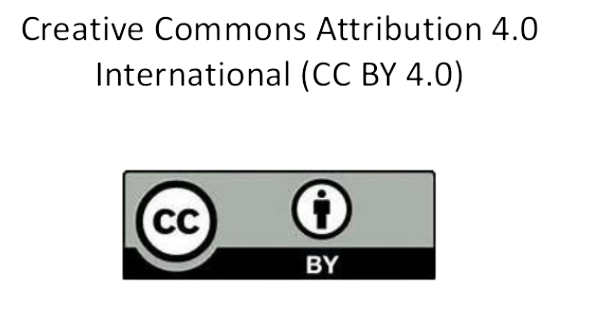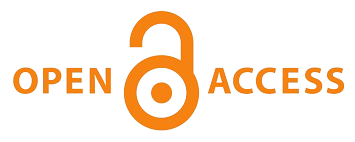Penerapan Modul Pembelajaran Interaktif Materi Tauhid tentang Kisah Nabi dan Rasul untuk Meningkatkan Pemahaman Peserta Didik
DOI:
https://doi.org/10.35719/jptpd.v2i1.106Keywords:
Modul Interaktif, Tauhid, Iman Kepada Nabi dan Rasul, Pemahaman Peserta Didik, Hasil Belajar, Interactive Module, Islamic Education, Learning Result, Student’s Understanding, Classroom Action ResearchAbstract
Tujuan dari penelitian ini adalah mengembangkan dan mengimplementasikan modul pembelajaran interaktif Pendidikan Agama Islam (PAI) mengenai materi Tauhid, khususnya tentang kisah Nabi dan Rasul, guna meningkatkan pemahaman peserta didik kelas VIII di SMP Islam Al Azhar Purwakarta pada tahun pelajaran 2024/2025. Metode yang digunakan adalah penelitian tindakan kelas (PTK) yang terdiri dari empat tahapan: perencanaan, pelaksanaan, pengamatan, dan refleksi. Modul yang dikembangkan memanfaatkan media interaktif seperti video, permainan edukatif, dan tugas kolaboratif untuk mendorong keterlibatan aktif peserta didik. Hasil penelitian menunjukkan adanya peningkatan signifikan dalam aspek keaktifan, kerjasama, tanggung jawab, dan toleransi peserta didik setelah penerapan modul pada siklus kedua. Tes hasil belajar menunjukkan peningkatan dari 29,4% peserta didik yang mencapai Kriteria Ketuntasan Minimal (KKM) pada siklus pertama menjadi 88,24% pada siklus kedua. Selain itu, hasil angket menunjukkan bahwa peserta didik merasa lebih tertarik, terbantu dalam memahami materi, dan menganggap proses pembelajaran lebih menyenangkan dengan penggunaan modul interaktif ini. Penelitian ini memberikan kontribusi positif terhadap praktik pengajaran PAI di SMP Islam Al Azhar Purwakarta dan dapat menjadi referensi bagi pengembangan modul pembelajaran interaktif di sekolah-sekolah lain.
This study aims to develop and implement an interactive Islamic Education learning module focused on Tauhid material, specifically the stories of Prophets and Messengers, to enhance students’ understanding in grade VIII at SMP Islam Al Azhar Purwakarta during the 2024–2025 academic year. The method used in this research is classroom action research (CAR), which consists of four stages: planning, implementation, observation, and reflection. The developed module incorporates interactive media such as videos, educational games, and collaborative tasks to encourage active student engagement. The results show a significant increase in students' activeness, cooperation, responsibility, and tolerance after applying the module in the second cycle. Learning test results improved from 29.4% of students meeting the Minimum Mastery Criteria in the first cycle to 88.24% in the second cycle. Additionally, questionnaire results indicate that students became more interested, found the material easier to understand, and perceived the learning process as more enjoyable with the interactive module. This study provides a positive contribution to Islamic education teaching practices at SMP Islam Al Azhar Purwakarta and can serve as a reference for developing interactive learning modules in other schools.
References
Al Mamun, M. A., & Lawrie, G. (2023). Student-content interactions: Exploring behavioural engagement with self-regulated inquiry-based online learning modules. Smart learning environments, 10(1), 1. https://doi.org/10.1186/s40561-022-00221-x
Al-Kamzari, F., & Alias, N. (2025). A systematic literature review of project-based learning in secondary school physics: theoretical foundations, design principles, and implementation strategies. Humanities and Social Sciences Communications, 12(1), 1-18. https://doi.org/10.1057/s41599-025-04579-4
Arikunto, S. (2013). Prosedur Penelitian: Suatu Pendekatan Praktik. Jakarta: Rineka Cipta.
Awoke, Y. A., & Zikargae, M. H. (2023). Exploring the opportunities and challenges of social media use in teaching and learning processes at public universities in Ethiopia. Cogent Education, 10(2), 2277558. https://doi.org/10.1080/2331186X.2023.2277558
Daryanto. (2013). Modul Pembelajaran: Konsep dan Penerapan
Harahap, F., Nasution, N. E. A., & Manurung, B. (2019). The Effect of Blended Learning on Student's Learning Achievement and Science Process Skills in Plant Tissue Culture Course. International Journal of Instruction, 12(1), 521-538. https://doi.org/10.29333/iji.2019.12134a.
Holifah, S., Dasuki, M., Sa’idah, S. N., & Husni, R. (2025). Penerapan Model Pembelajaran Role playing untuk Meningkatkan Hasil Belajar Siswa Sekolah Dasar. Journal of Pedagogical and Teacher Professional Development, 1(2), 291–300. https://doi.org/10.35719/jptpd.v1i2.35
Houghton, J. (2023). Learning modules: problem-based learning, blended learning and flipping the classroom. The Law Teacher, 57(3), 271-294. https://doi.org/10.1080/03069400.2023.2208017
Iqbal, M., & Basri, B. (2023). Constructivistic Learning Model Based on Cognitive Science for Optimizing Conceptual Understanding Tawhid at Madrasah Aliyah. Jurnal Pendidikan, Sains Sosial, dan Agama, 9(2), 97-112. https://doi.org/10.53565/pssa.v9i2.1461
Kemmis, S., & McTaggart, R. (2014). The action research planner. Singapore: Springer. https://doi.org/10.1007/978-981-4560-67-2
Khoiroh, M. (2025). Implementation of Storytelling Method to Improve Students' Understanding of the Stories of the Prophets and Apostles at RA Ar Rahman. ETNOPEDAGOGI: Jurnal Pendidikan dan Kebudayaan, 2(1), 409-419. https://journal.mgedukasia.or.id/index.php/etnopedagogi/article/view/623
Kimura, R., Matsunaga, M., Barroga, E., & Hayashi, N. (2023). Asynchronous e-learning with technology-enabled and enhanced training for continuing education of nurses: a scoping review. BMC medical education, 23(1), 505. https://doi.org/10.1186/s12909-023-04477-w
Kirom, A., Farihah, U., & Nisak, F. U. (2025). Penerapan Model Pembelajaran Cooperative Learning Tipe Jigsaw dalam Meningkatkan Hasil Belajar Peserta Didik pada Materi Sujud Syukur. Journal of Pedagogical and Teacher Professional Development, 1(2), 242–251. https://doi.org/10.35719/jptpd.v1i2.31
Li, R., Lund, A., & Nordsteien, A. (2023). The link between flipped and active learning: A scoping review. Teaching in Higher Education, 28(8), 1993-2027. https://doi.org/10.1080/13562517.2021.1943655
Melinda, S., Feizi, F., & Monfared, P. N. (2024). Transforming Religious Learning with Macromedia Flash 8: Improving Students' Understanding of the Material on Faith in the Apostles. Journal of Educational Technology and Learning Creativity, 2(2), 201-208. https://doi.org/10.37251/jetlc.v2i2.1100
Nasution, N. E. A. & Sofyan, M. (2024). Development of Pisces Diversity E-Module based on Fish Identification Research in Plalangan Village, Jember. Indonesian Journal of Mathematics and Natural Science Education 5(1), 1-15. https://doi.org/10.35719/mass.v5i1
Nurfitriyani, R., Kholil , M., Hasyim, N., & Salam, M. W. (2025). Peningkatan Hasil Belajar Siswa pada Mata Pelajaran Pendidikan Agama Islam dan Budi Pekerti Menggunakan Model Pembelajaran Joyful Learning. Journal of Pedagogical and Teacher Professional Development, 1(2), 170–190. https://doi.org/10.35719/jptpd.v1i2.2
Pratama, E. S., Umam, K., Syamsuddin, & Suwadi. (2025). Upaya Peningkatan Kemampuan Peserta Didik dalam Dakwah, Khutbah, dan Tabligh melalui Metode Drill dan Demonstrasi. Journal of Pedagogical and Teacher Professional Development, 1(2), 201–214. https://doi.org/10.35719/jptpd.v1i2.23
Purnama, D., Mas’ud, & Munip, A. (2025). Peningkatan Pemahaman Materi Salat Siswa melalui Media dan Bahan Ajar Berbasis Teknologi Informasi. Journal of Pedagogical and Teacher Professional Development, 1(2), 191–200. https://doi.org/10.35719/jptpd.v1i2.13
Safitri, T. R., & Dafit, F. (2025). Development of Interactive E-Modules for Elementary Students: Enhancing Learning Outcomes. PrimaryEdu: Journal of Primary Education, 9(1), 51-67. https://doi.org/10.22460/pej.v9i1.5681
Saleem, A., Kausar, H., & Deeba, F. (2021). Social constructivism: A new paradigm in teaching and learning environment. Perennial journal of history, 2(2), 403-421. https://doi.org/10.52700/pjh.v2i2.86
Soeteja, Z. S., Kurnia, G. J., & Setiawan, Y. U. K. K. I. (2024). Design of web-based digital module for improving student understanding and skills in graphic design lessons in vocational school. Journal of Engineering Science and Technology, 19(4), 1535-1570.
Sudarman, S., & Ardian, A. (2021). The development of interactive module to support student centered learning. Akademika, 10(01), 77-92. https://doi.org/10.34005/akademika.v10i01.1344
Yang, Q. F., Lian, L. W., & Zhao, J. H. (2023). Developing a gamified artificial intelligence educational robot to promote learning effectiveness and behavior in laboratory safety courses for undergraduate students. International journal of educational technology in higher education, 20(1), 18. https://doi.org/10.1186/s41239-023-00391-9
Zulkifli, A. (2018). Pengembangan dan Penilaian Modul Pembelajaran PAI. Surabaya: CV. Bina Ilmu.
Downloads
Published
How to Cite
Issue
Section
License
Copyright (c) 2025 Journal of Pedagogical and Teacher Professional Development

This work is licensed under a Creative Commons Attribution 4.0 International License.











